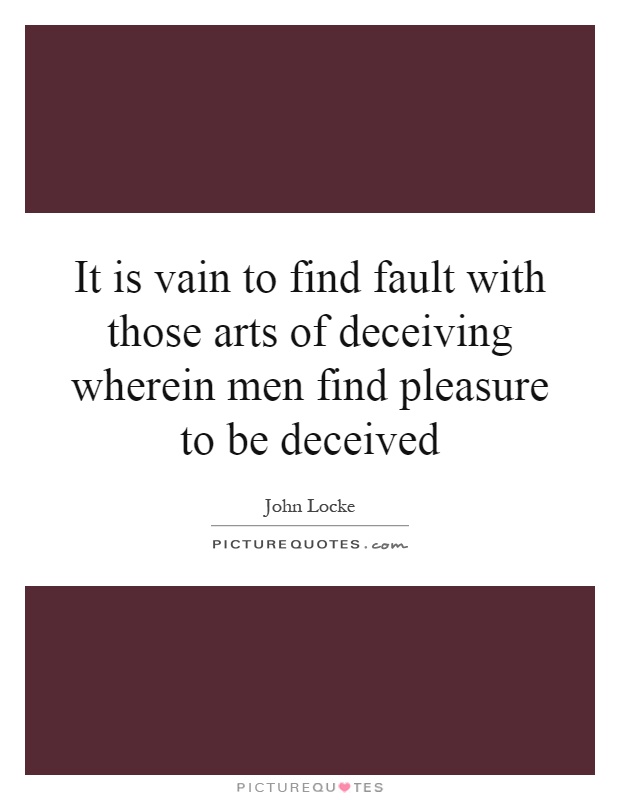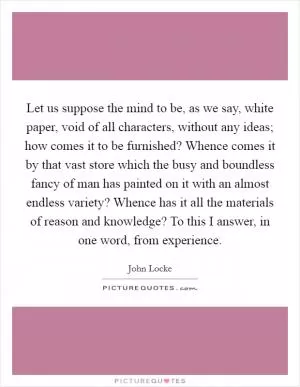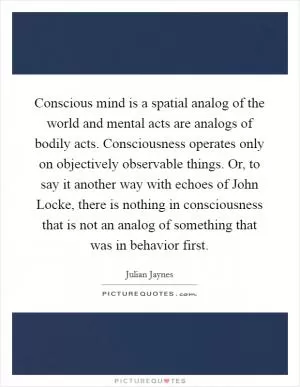It is vain to find fault with those arts of deceiving wherein men find pleasure to be deceived

It is vain to find fault with those arts of deceiving wherein men find pleasure to be deceived
John Locke, a prominent philosopher of the Enlightenment era, believed in the importance of reason and rationality in human thought and behavior. In his work, Locke often discussed the nature of knowledge, perception, and belief, and how these concepts shape our understanding of the world around us. One of the key ideas that Locke explored was the notion that humans are inherently prone to deception, both in their own perceptions and in their interactions with others.Locke's statement that "It is vain to find fault with those arts of deceiving wherein men find pleasure to be deceived" speaks to the complex relationship between deception and human nature. In this context, Locke is suggesting that there are certain forms of deception that are not only inevitable but also enjoyable for individuals. This could refer to various forms of entertainment, such as magic tricks, illusions, or storytelling, where the audience willingly suspends their disbelief in order to be entertained.
Locke's assertion that it is "vain to find fault" with these arts of deceiving implies that there is a certain futility in trying to condemn or criticize these forms of deception. Instead, Locke seems to be suggesting that we should accept and even embrace the role that deception plays in our lives, particularly when it comes to activities that bring us pleasure and enjoyment.
Furthermore, Locke's statement can also be interpreted as a commentary on the nature of human perception and belief. He may be suggesting that our understanding of the world is inherently flawed and that we are often deceived by our own senses and cognitive biases. In this sense, deception is not just a form of entertainment but a fundamental aspect of human cognition.
Overall, Locke's perspective on deception challenges us to reconsider our attitudes towards the ways in which we are deceived and to recognize the role that deception plays in shaping our perceptions and experiences. By acknowledging the inevitability of deception and finding pleasure in it, we can gain a deeper understanding of ourselves and the world around us.












 Friendship Quotes
Friendship Quotes Love Quotes
Love Quotes Life Quotes
Life Quotes Funny Quotes
Funny Quotes Motivational Quotes
Motivational Quotes Inspirational Quotes
Inspirational Quotes